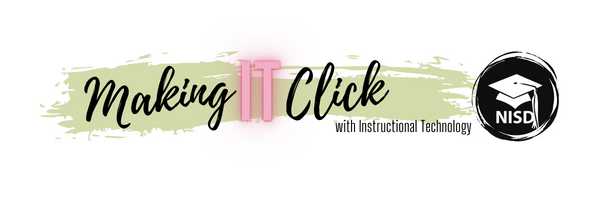Educators are always looking for new ways to reach students and help them find methods or paths for acquiring success in the classroom. However, it seems that there are some students who, despite our best efforts (and their own), struggle with the institutional process of acquiring knowledge and skills necessary to meet traditional measures of success. After recently reading the words of Katie Usher, a Texas elementary school teacher, it became clear that well-known classroom differentiation practices, although very effective and successful for some, may not be enough for students who need a completely different learning environment in order to access the content needed for mastery. Although Katie’s experiences are based on a gifted classroom, her words are important for all students. She asserts that “In the digital era, we can provide all of our students with technological ways to enhance their learning, no matter their academic label. Every student is different and needs to be offered a variety of ways to show what they’ve learned in a way that reflects their individuality.” This is exactly the philosophy behind the ever growing "Eagle Strong" cycle recovery program offered at Eaton High School (EHS).
Alicia Dunson, a Professional Communication teacher at Eaton, has spent a majority of her career working to find ways to reach students where they are and to help them progress and find methods for success that work for them. Alicia starts by learning about her students and building relationships with them that allow her to not only ask her students some tough questions about previous academic patterns but she is also able to use her positive relationships to push these students to develop levels of accountability and self-sufficiency that gives them ownership in their own learning moving forward. This philosophy of teaching made Alicia a perfect fit to help develop the "Eagle Strong" cycle recovery program at EHS and to begin working with students to access systems and methods more appropriate for their individual learning needs.
In this program, students are identified as needing intervention before completely failing a course and they are not only given an opportunity to access narrowed and unmastered course content through a self-paced online platform, but they also have the support of certified educators working on campus that can assist as needed. Mrs. Dunson facilitates student progress by helping them learn ways to record and track their own mastery of coursework that work for them and by connecting students with teachers and tutors before, during, and after school hours. Through use of these online tools and content, qualifying students can showcase existing knowledge that might previously have been a struggle for them to display and to do so in a timely fashion without getting behind in credits and while receiving both built-in and in-person remediation. The ability to digitally self-accelerate beyond concepts already mastered and to slow down to focus on more difficult areas of the curriculum make this educational experience unique and more effective for some than a traditional environment.
One student in Mrs. Dunson’s "Eagle Strong" program credits this experience with helping her to revisit and master content from multiple courses without the stress and pressure she typically experiences in a regular classroom environment. She feels that the ability to move through material at her own pace puts the responsibility on her and she says that “You have to learn. You cannot just zone out or not pay attention. It’s all on you.” Another student said that she has learned study skills that can help her in other courses and she feels the online coursework helps her because the courses “have a different way of teaching and gives students different ways to learn the material.” She likes the ability to watch and re-watch a lot of videos that show her examples and also enjoys the freedom to go through curriculum on her own.
While many students thrive in a traditional school environment, some need more than tradition can offer or they may have experienced circumstances that hinder their progress in all or parts of a particular course. In some situations, students simply need other ways to access content in order to master the skills and knowledge necessary to grow and thrive. EHS is providing a method for students to do just that through the development of their cycle recovery program and they are creating options for students to learn and excel that allow flexibility and choice while not compromising student time, interests, and most importantly, confidence. This program, in essence, is an example of differentiation at its best and as our fellow Texas educator, Katie Usher, put it, “Differentiating allows students to have their voice heard, which can lead them to become self-motivated learners. And that in turn can help increase both their learning growth and their self-awareness of that growth.” These achievements in differentiation are much needed components of our educational system that truly provide for a future where fewer students are “left behind.”
Usher, Katie. “Differentiating by Offering Choices.” Edutopia, George Lucas Educational Foundation, 10 Apr. 2019, www.edutopia.org/article/differentiating-offering-choices.



No comments:
Post a Comment
Note: Only a member of this blog may post a comment.